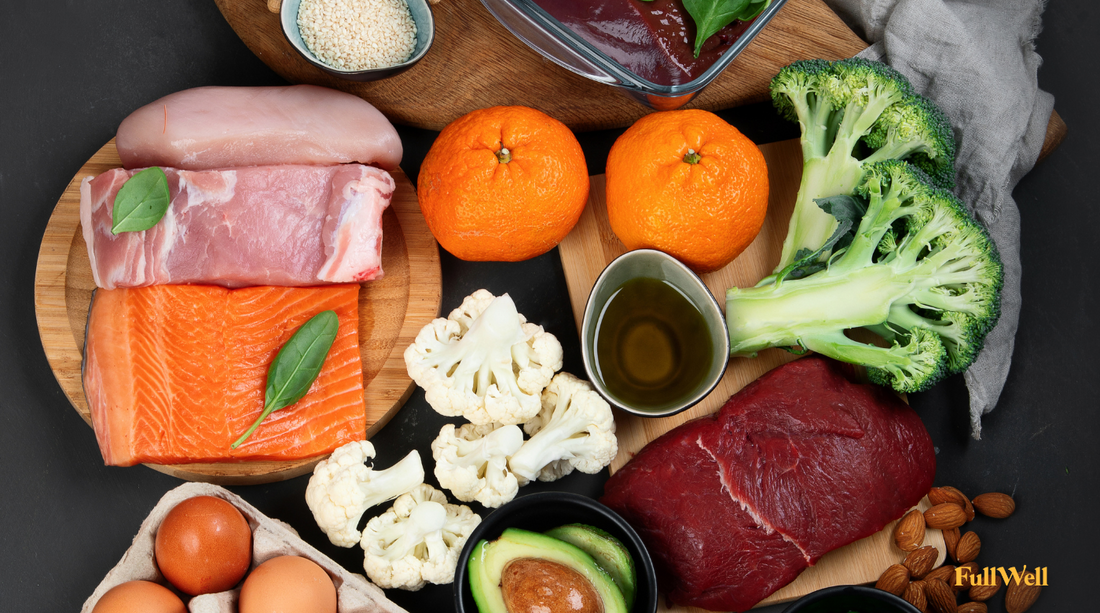CoQ10 for Fertility: The Complete Reproductive Guide
TL;DR
- Maintaining adequate levels of CoQ10 is important for overall health and fertility, as CoQ10 plays a major role in energy production and antioxidant protection.
- Food sources of CoQ10 alone might not be substantial enough to significantly influence our bodies’ CoQ10 levels for specific health goals, such as fertility improvement or addressing particular health conditions.
- CoQ10 offers numerous advantages for male fertility, including enhancing and safeguarding sperm quality by bolstering the body's defenses against harmful free radicals and preserving DNA integrity.
- Antioxidants, including CoQ10 also offer advantages for female fertility and can help improve and protect egg quality, supporting the body’s free radical defenses and maintaining DNA integrity, among many other things.

What is Coenzyme Q10 (CoQ10)?
Coenzyme Q10 (CoQ10) is a fat-soluble antioxidant made by our body (1). This means that like fat-soluble vitamins A and D, CoQ10 dissolves in fats and oils rather than in water. You can find it in certain foods, and it's also available as a supplement.
As we age, CoQ10 in our body decreases (1). Certain medications, like beta-blockers, vasodilators, and thiazide diuretics, can also reduce CoQ10 levels.
Maintaining adequate levels is important for overall health and fertility, as CoQ10 plays a major role in energy production and antioxidant protection.
What is CoQ10’s Role in the Body?
CoQ10 is a little helper molecule in our bodies.
It does two important jobs: first, it helps transfer energy within our cells by moving around electrons (tiny particles that are involved in various chemical reactions and processes, including the transfer of energy within our cells) (2). This is important for making a substance called adenosine triphosphate (ATP), which our cells use for energy (2).
CoQ10 also acts as a protector by working as an antioxidant, which means it helps protect our cells from damage caused by harmful molecules found in our modern environment (2). If you are interested in learning more about the role of antioxidants and oxidative stress, check out our Antioxidant blog.
What Foods Contain CoQ10?
Foods like meat (chicken, beef, and pork), organ meats (liver and kidney), fish (fatty fish like salmon, mackerel, sardines, and trout), nuts, and certain oils have the most CoQ10. You can find smaller amounts in dairy, veggies, fruits, and cereals.
However, the levels they provide might not be substantial enough to significantly influence our bodies’ CoQ10 levels for specific health goals, such as fertility improvement or addressing particular health conditions.
This is the reason many people rely on CoQ10 supplementation.
Benefits of CoQ10 for Fertility
CoQ10 and Male Fertility
CoQ10 offers numerous advantages for male fertility, including enhancing and safeguarding sperm quality by bolstering the body's defenses against harmful free radicals and preserving DNA integrity.
Several studies suggest that CoQ10 can also:
- Increase the concentration of CoQ10 and ubiquinol in semen and sperm cells and successfully develop sperm motility in men impacted by idiopathic asthenozoospermia (absent or reduced sperm) (3).
- Positively impact the health and effectiveness of sperm especially motility (movement) after 3-6 months of supplementation (4).
- Improve sperm concentration (5).
CoQ10 and Female Fertility
CoQ10 can also have many benefits when it comes to female fertility.
Antioxidants, including CoQ10, can help improve and protect egg quality, supporting the body’s free radical defenses and maintaining DNA integrity, among many other things.
Several studies suggest that CoQ10 can have significant benefits for female fertility including:
- Improving both the quantity and quality of eggs in the ovarian reserve, which tends to decline with age (6).
- Increasing the number of eggs retrieved during in vitro fertilization (IVF) procedures, along with improved fertilization rates (7).
- Higher CoQ10 levels in the fluid surrounding the eggs was linked to higher pregnancy rates (8).
When combined with other fertility treatments like DHEA, it showed promising results in improving follicle count in women undergoing fertility treatments (9).
CoQ10 Bioavailability
CoQ10 comes in different forms, each with its own level of bioavailability (how well our body can absorb and use it). CoQ10 comes in two main forms: ubiquinone (the oxidized form) and ubiquinol (the reduced form of CoQ10).
Our body can switch between these forms, but it's a complex process that involves several enzymes. As we get older, our bodies become less efficient at converting CoQ10 into its active form.
CoQ10 can also be formulated in different ways, such as with sunflower lecithin to create a phytosome complex, which can further enhance its absorption.
Understanding these different forms and formulations can help individuals choose the most effective CoQ10 supplement for their needs.
How Much CoQ10 is Beneficial for Fertility?
Research shows that 200-600 mg of CoQ10 per day for at least 3-6 months before trying to conceive is beneficial when it comes to fertility for both men and women (7, 10, 3).
Are CoQ10 Supplements Safe?
Yes! CoQ10 is well-tolerated and safe for healthy adults at an intake of up to 900 mg/day (11). However, we always recommend being guided by your healthcare practitioner to find what is best for you.
When should I start taking CoQ10?
It’s never too soon, but ideally, you should think about taking CoQ10 at least 3-6 months before trying to conceive, undergoing fertility treatment, or freezing eggs or sperm.
Fertility is increasingly being recognized as a biomarker for overall health, so you can also take it over more extended periods to futureproof your fertility.
Do Men Need to Take CoQ10 Before Trying to Conceive Too?
Yes! Men produce 50-100 million sperm daily, which take about 2-3 months to fully mature. During this crucial period, providing the right nutrients to support the development of spermatids and boost free-radical defenses is essential.
For optimal preparation of your body and sperm for conception, it's recommended to start taking it at least 3-6 months before trying to conceive.
When Should I Stop Taking CoQ10 for Fertility?
If you are taking CoQ10 in preparation for egg or sperm freezing, continue to take it until after your retrieval/collection.
If you are actively trying for a family, continue taking it until you have a confirmed positive pregnancy test.
Finally, if you want to preserve your fertility for the future, you can take it for the long run!
CoQ10 in our Fertility Booster
If you are trying now (or maybe later), meet our Fertility Booster! Expertly formulated for both partners to add to their Prenatal or Multivitamin protocols, this unique antioxidant blend aims to improve and protect egg and sperm quality.* Yes, it’s for dads and dads-to-be too!
We chose to include 150mg of CoQ10 phytosome (Ubiqsome®) in our Fertility Booster formulation to overcome CoQ10’s hydrophobicity (its tendency to repel water) and maximize bioavailability. In fact, it’s 3 times more bioavailable than most CoQ10 forms on the market (2).
Combining CoQ10 with sunflower lecithin creates a phytosome complex that enhances the absorption and utilization of CoQ10 in the body. In a phytosome, one substance is usually a plant extract, like CoQ10, and the other is a natural fat, like lecithin. When they're combined, they become easier for our body to absorb. This means you can achieve the same benefits with a smaller amount.
Our suggested dosing for Fertility Booster includes continuing through the two-week window and until pregnancy is confirmed or as otherwise directed by your healthcare practitioner.
Ensuring you get enough CoQ10 can be a vital step in supporting your reproductive health and overall well-being.




